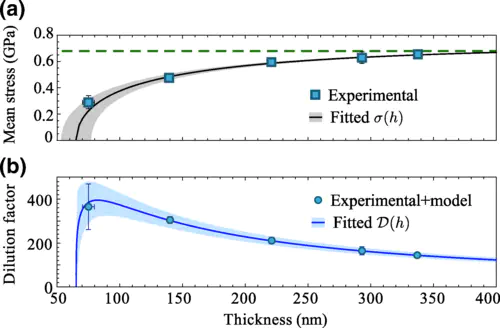 Image credit: E. Romero
Image credit: E. Romero
Abstract
High-quality micro- and nanomechanical resonators are widely used in sensing, communications, and timing, and have future applications in quantum technologies and fundamental studies of quantum physics. Crystalline thin films are particularly attractive for such resonators due to their prospects for high quality, high intrinsic stress, high yield strength, and low dissipation. However, when such films are grown on a silicon substrate, interfacial defects arising from lattice mismatch with the substrate have been postulated to introduce additional dissipation. Here, we develop a back-side etching process for single-crystal silicon carbide microresonators that allows us to quantitatively verify this prediction. By engineering the geometry of the resonators and removing the defective interfacial layer, we achieve quality factors exceeding a million in silicon carbide trampoline resonators at room temperature, a factor of five higher than those achieved without removal of the interfacial defect layer. We predict that similar devices fabricated from ultrahigh-purity silicon carbide, leveraging its high yield strength, could enable room-temperature quality factors as high as 6×10^9.